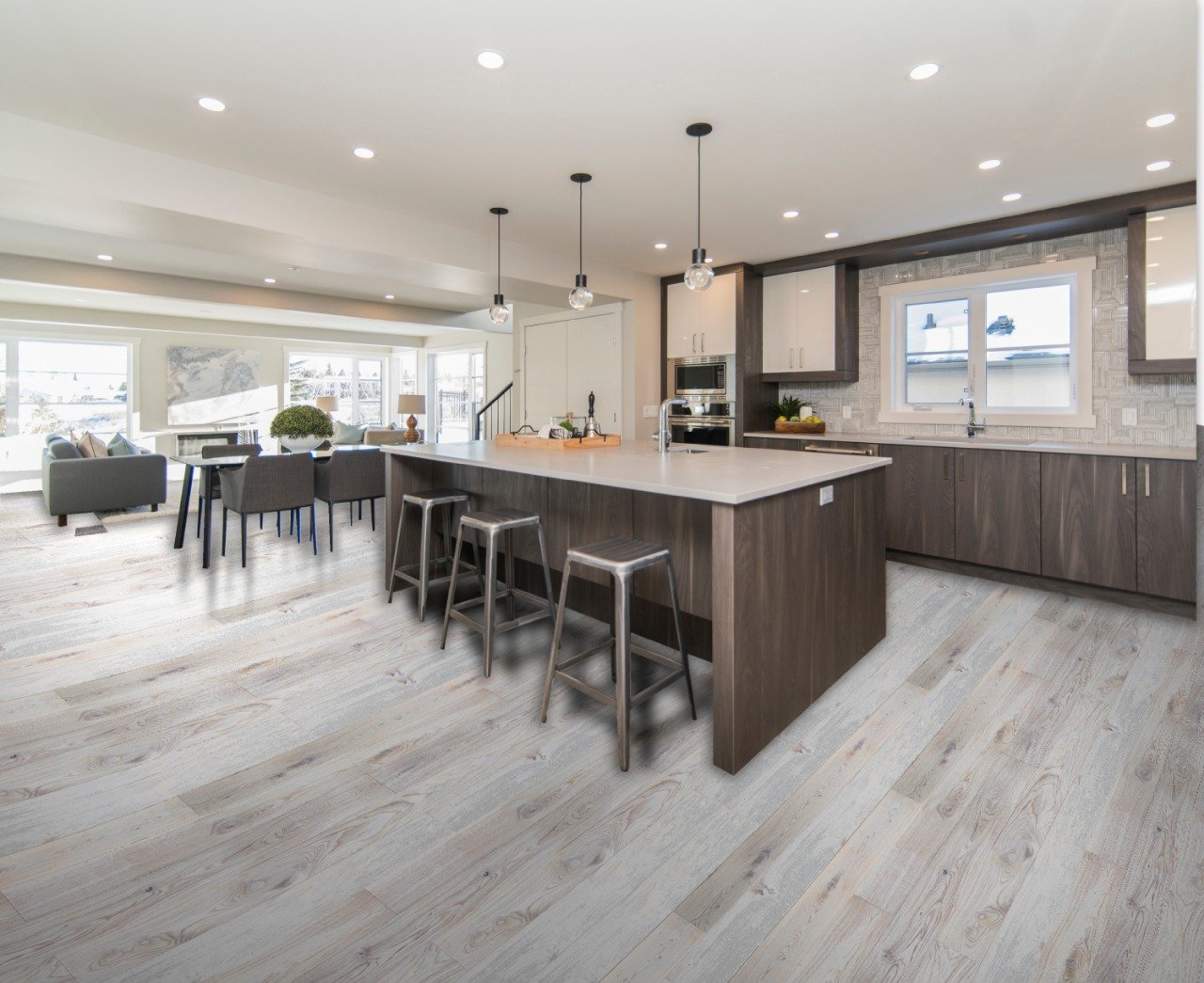1. Construction
Solid hardwood boards are milled from a thick piece of lumber, so its thickness varies from ¾-inch to 7/16-inch. Engineered boards, on the other hand, are constructed by joining multiple high-density fiberboard layers sandwiched inside a solid wood top layer and hardwood backing, making it extremely tough.
2. Expansion and contraction
The distinct construction of engineered wood forms a rigid structure that does not gap, buckle, or respond to fluctuations in temperature and humidity. Solid wood fluctuates a lot, and is mostly used for ground level rooms and above, while engineered wood can be installed on any level, including below ground.
3. Durability
Engineered floors are constructed in such a way that they have enhanced stability and slightly more resistance to daily wear and tear and buckling, though both have an extremely durable coating capable of withstanding harsh treatment.
4. Stability
Engineered wood is dimensionally more stable compared to solid wood floors.
5. Maintenance
The hardwood floors become more appealing as they age, though the surface tends to dull and develop scratches and scuffs over time. Solid wood can be sanded and refinished multiple times depending on its thickness, while engineered boards only need refinishing once or twice over the floor’s life.
6. Cost
Solid hardwood is more expensive than engineered floor with regard to method of installation, labor, and cost of material.
7. Resistance to moisture
Compared to solid hardwood, engineered wood floors have superior resistance to slightly lower and higher moisture levels, which makes them more ideal for use in damp basements or regions with higher or lower than standard humidity levels.
8. Going green
Choosing engineered floors over solid wood helps to conserve expensively priced timber. For every 1 square foot of ¾ inch thick solid wood floor, you can manufacture around 4 times that amount into engineered wood flooring.
Despite the differences, any hardwood flooring is a great option, especially since it does not cause allergies, and it increases the value of your home by 2-5%.
